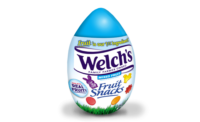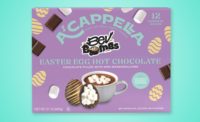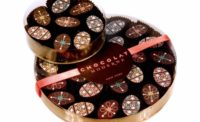
Multiple surveys have found consumers demanding less packaging and more recycling. In response, many confectioners in the U.K. are giving them less, and as a result, becoming greener.
The not-for-profit company Waste & Resources Action Program (WRAP) has been working with confectionery manufacturers and retailers to help them reduce their waste and recycle more. And it’s no wonder why when 3,000 tons of waste are generated by Easter egg packaging produced in the U.K. each year, says WRAP. This Easter, confectionery companies in the U.K. are putting this knowledge to use.
Nestle U.K., for example, has removed plastic packaging from the majority of its Easter egg range and reduced packaging across its entire range by 30%, which will save at least 700 tons of waste, says the company.
“Consumers tell us that they find plastic Easter egg packaging bulky and difficult to recycle,” says David Rennie, managing director, Nestle Confectionery. “We’ve worked hard this year to get rid of it where we can and use recyclable cardboard instead. Our ultimate aim is to remove plastic from our Easter range all together.”
And Nestle U.K. is not the only confectionery company making this move. According to WRAP, confectionery companies such as Cadbury U.K., Kraft U.K., Magna Specialist Confectioners and Mars U.K. have all made a voluntary agreement to make significant reductions to their Easter egg packaging for 2009 under the WRAP-led Seasonal Confectionery Industry Working Group.
For instance, Cadbury U.K. has reduced the packaging on its medium shell eggs by 25%, resulting in 220 tons less plastic, 250 tons less carton board and 90 tons less transit/display packaging. Cadbury U.K. also reduced the packaging on its large shell eggs by 36%, reducing plastic by 108 tons, carton board by 65 tons and corrugated cardboard by 44 tons. Additionally, Mars U.K. reduced its carton and cardboard weight by 42% and reduced the amount of plastic used. All of the company’s Easter egg packaging (except its Galaxy Premium Egg) is now 100% recycled cardboard and gives advice to consumers on how and where to recycle the packaging, says WRAP.
“With significant packaging reductions achieved across a wide range of Easter eggs this year, it’s clear the industry is listening to customers and making changes that reduce the environmental impact of packaging, while helping customers to recycle more of it,” says Mark Barthel, special advisor for WRAP.




